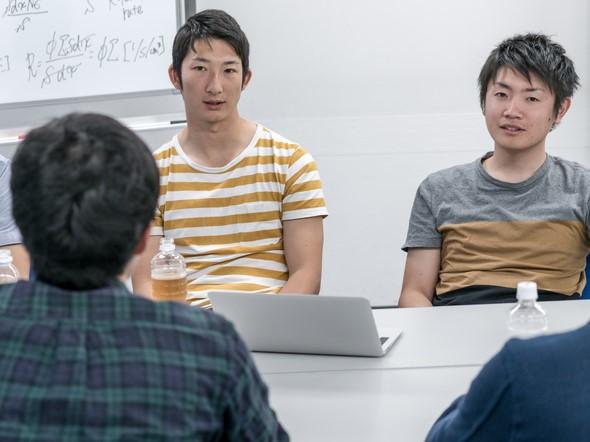
How can we solve Japan’s student mobility issues?
Japan struggles with multiculturalism as a concept, let alone a reality, and overseas students can suffer. But online education could offer help, says Haruko Satoh

You may also like
Popular resources
Student mobility and exchange programmes have become indispensable to higher education. For students, studying abroad lets them experience life outside their comfort zone. For universities, international students have become attractive sources of income, but they also bring cultural diversity to campus life. A multicultural environment undoubtedly helps enhance the overall educational and intellectual experience, nurturing mindsets and outlooks for a globalised world.
When international travel ground to a halt with the pandemic, universities faced severe challenges, from Zoom fatigue and financial security to questions about the role of universities in general. China’s controversial role as a major financial supporter and the largest “student supplier” state to many of the prestigious Western universities also came under scrutiny. In this symbiotic relationship between Western universities and China, many of the universities have fallen into the trap of what is sometimes described as China’s “salami-slicing” strategy of gaining influence in other countries, such as through its Confucius Institutes.
Given that the huge number of private and state-funded students from China also helps with universities’ finances, as Beijing tightens its control on domestic dissent its long arm also extends to universities in the West and the Chinese students studying there, where students from Hong Kong or Taiwan can be harassed by mainland Chinese students for speaking their minds about Beijing’s policies towards their respective homelands.
But universities are supposed to be bastions of learning based on free thinking, open debate and discussion of ideas. They are places to promote mutual understanding among students from all over the world, and keeping them as such should be a global concern and not a matter framed narrowly as a Western concern.
Take, for example, a socially homogeneous country such as Japan, where the language and cultural barriers can still be problematic for foreigners. Here, the number of degree programmes in English is growing to attract more international students, and the cultural diversity in a classroom can now be quite startling. I have had students from Cambodia, China, Egypt, India, Indonesia, Iran, Malaysia, Mozambique, the Netherlands, Palestine, Pakistan, the Philippines, Portugal, South Korea, South Sudan, Solomon Islands, Spain, Syria, Timor-Leste, Vietnam and Zimbabwe in the international relations classes I teach.
This kind of classroom provides international exposure to shy Japanese students, but it is a multicultural challenge for all. For many international students, living in Japan is not easy – even if they can speak some Japanese. There are issues concerning food and religion, in addition to prejudice and discrimination, particularly for devout Muslim students. Even though Japan is a rich democracy, it is not the US or the UK where racial and ethnic identity issues are everyday life matters. This fact appears to shock some international students who have little knowledge of Japan’s history, society and culture.
Multiculturalism is an awkward, if not alien, concept to many Japanese. People tend to be cautious about foreigners who might disrupt the much-cherished social harmony. The country’s tight immigration policy is testament to this. Many Japanese companies’ preference to recruit “Japanised” foreign students is another. Adjusting to Japan’s social norms, which can seem conformist, is not easy. Experiencing a sense of rejection or “not fitting in” is all too common.
Thus, there are many teething problems for Japanese universities and local communities in accepting students from a range of countries on Japanese government scholarships.
The challenge for Japan is not just to adjust to the growing number of international students but also to be more attuned to global conversations on multiculturalism. Recognition and respect for those who are different are the starting points. But in the current climate, where nationalism has made a comeback, alongside great energy in movements seeking social justice and the dismantling of colonial legacies, be they “Rhodes Must Fall” or “Black Lives Matter”, nurturing multiculturalism can be difficult.
Japan has been relatively cool to these developments and has remained detached even from legacies of its own colonial acts, but international students bring this potential source of social and political conflict to its doorstep through universities.
However, the online teaching environment that developed rapidly during the pandemic may offer a new mode of student mobility and exchange, where meaningful conversations about political and cultural identity issues could take place. While the online classroom cannot completely replace the physical one, for humanities and social sciences in particular, the intellectual experiences in a globally connected classroom can be rewarding.
For one, exposure to different cultures and viewpoints can take place without the intimidating aspects of body language that could occur in a physical setting. Being out of one’s comfort zone is stressful, and a sense of insecurity and isolation can develop quickly in students if the environment is unfriendly. Needless to say, some adjust better than others, but we must also recognise this downside of the “immersive” type of student exchange programmes, however well designed and monitored. The campus is not the only place students spend their time; their thoughts and ideas are shaped by everyday living experiences.
Developing a secure and solid higher education space online could be one meaningful way to promote diversity and multiculturalism as a global aspiration. Like-minded universities and willing faculty could collaborate to offer more online co-teaching courses (such as summer schools) on subjects that nurture the importance of multiculturalism, such as international politics, conflict studies and global and regional history.
While educational institutions that are grounded in the history and culture of a particular country offer important experiences, it may be time to also consolidate a borderless intellectual space, which online can provide. It might even help to reinvent universities as institutions promoting global peace – away from the unwelcome incursions of geopolitics and toxic nationalism.
Haruko Satoh is co-director of the IAFOR Research Centre at the Osaka School of International Public Policy, Osaka University, Japan.



Comments (0)
or in order to add a comment